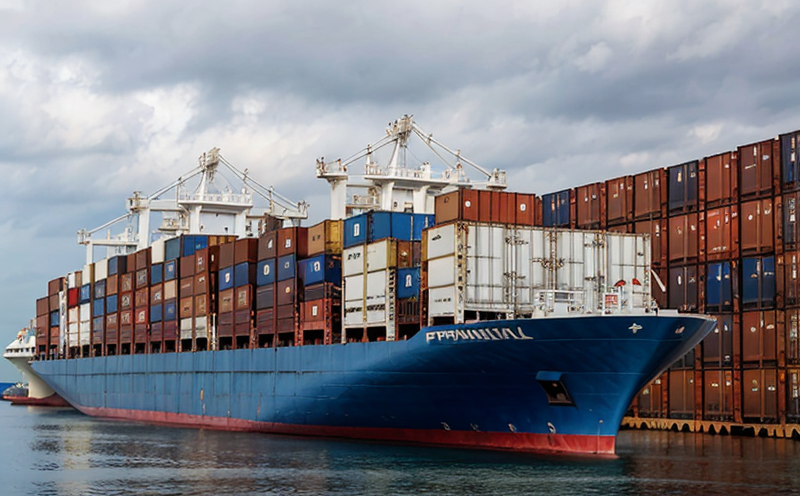Pharmaceutical Export and Import Compliance: Ensuring Global Regulatory Convergence
The pharmaceutical industry has become increasingly globalized in recent years, with companies operating in multiple countries and exporting/importing products across borders. This has led to a complex regulatory landscape that requires strict adherence to international standards and laws governing the export and import of pharmaceuticals.
Why is Pharmaceutical Export and Import Compliance Important?
Pharmaceutical export and import compliance is critical for several reasons:
Ensures patient safety by ensuring that drugs are manufactured, packaged, and labeled in accordance with international quality and regulatory standards.
Prevents counterfeit products from entering the market, thereby protecting public health and preventing financial losses to manufacturers and distributors.
Facilitates global trade and commerce by simplifying customs procedures and reducing costs associated with non-compliance.
Key Considerations for Pharmaceutical Export and Import Compliance
Several key considerations must be taken into account when exporting or importing pharmaceuticals:
Regulatory requirements: Each country has its unique set of regulations, laws, and standards governing the export and import of pharmaceuticals. Companies must ensure that they comply with all applicable regulations, including those related to product labeling, packaging, and documentation.
Product registration: Pharmaceutical products must be registered in each country where they are intended for sale. This involves submitting detailed documentation, including product information, manufacturing records, and quality control data.
Good Manufacturing Practice (GMP): Companies must adhere to GMP principles to ensure that their facilities, equipment, and processes meet international standards for quality and safety.
Compliance with International Standards
Companies exporting or importing pharmaceuticals must comply with international standards governing the industry:
International Council for Harmonisation of Technical Requirements for Pharmaceuticals for Human Use (ICH): The ICH is a global organization that harmonizes technical requirements for pharmaceutical products. Companies must ensure that their products meet ICH guidelines on quality, safety, and efficacy.
Good Distribution Practice (GDP): GDP principles govern the distribution of pharmaceutical products. Companies must ensure that their logistics and distribution systems comply with GDP standards to prevent product contamination or degradation.
Documentation Requirements
Companies exporting or importing pharmaceuticals must maintain detailed documentation to facilitate compliance:
Commercial invoices: Commercial invoices must include accurate information about the product, including its name, description, quantity, and value.
Certificates of origin: Certificates of origin must be issued by the country where the product was manufactured to prove that it complies with all applicable regulations.
Product documentation: Companies must maintain detailed records of their products, including batch numbers, manufacturing dates, and testing results.
Regulatory Agencies Involved in Pharmaceutical Export and Import Compliance
Several regulatory agencies are involved in pharmaceutical export and import compliance:
U.S. Food and Drug Administration (FDA): The FDA is responsible for ensuring that pharmaceuticals exported to the United States comply with all applicable regulations.
European Medicines Agency (EMA): The EMA is responsible for overseeing the registration of pharmaceutical products in the European Union.
World Health Organization (WHO): The WHO plays a critical role in promoting global harmonization of technical requirements for pharmaceuticals.
QA Section
Q1: What are the primary regulatory agencies involved in pharmaceutical export and import compliance?
A1: The FDA, EMA, and WHO are the primary regulatory agencies involved in pharmaceutical export and import compliance.
Q2: What is Good Manufacturing Practice (GMP), and why is it important for pharmaceutical export and import compliance?
A2: GMP principles govern the manufacture of pharmaceutical products to ensure that they meet international standards for quality and safety. Companies must adhere to GMP guidelines to prevent product contamination or degradation during transportation.
Q3: What documentation requirements are necessary for pharmaceutical export and import compliance?
A3: Companies exporting or importing pharmaceuticals must maintain detailed documentation, including commercial invoices, certificates of origin, and product documentation.
Q4: How can companies ensure that their products comply with international standards for quality, safety, and efficacy?
A4: Companies can ensure that their products comply with international standards by adhering to ICH guidelines on quality, safety, and efficacy. They must also maintain detailed records of their manufacturing processes, testing results, and product performance.
Q5: What are the consequences of non-compliance with pharmaceutical export and import regulations?
A5: Non-compliance with pharmaceutical export and import regulations can result in severe penalties, including fines, product recalls, and even criminal prosecution. It can also damage a companys reputation and lead to financial losses.
Pharmaceutical export and import compliance is critical for ensuring patient safety, preventing counterfeiting, and facilitating global trade. Companies must comply with international standards, regulatory requirements, and documentation procedures to avoid severe consequences.

































